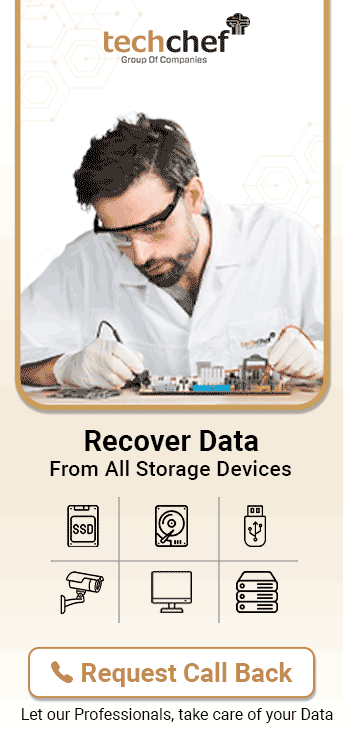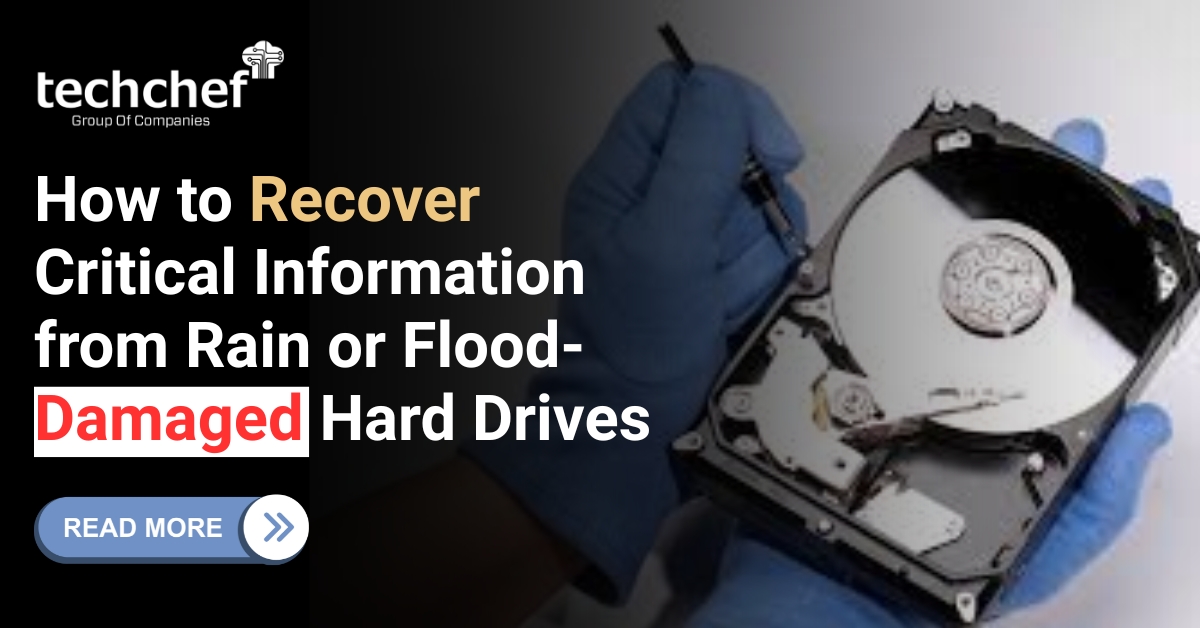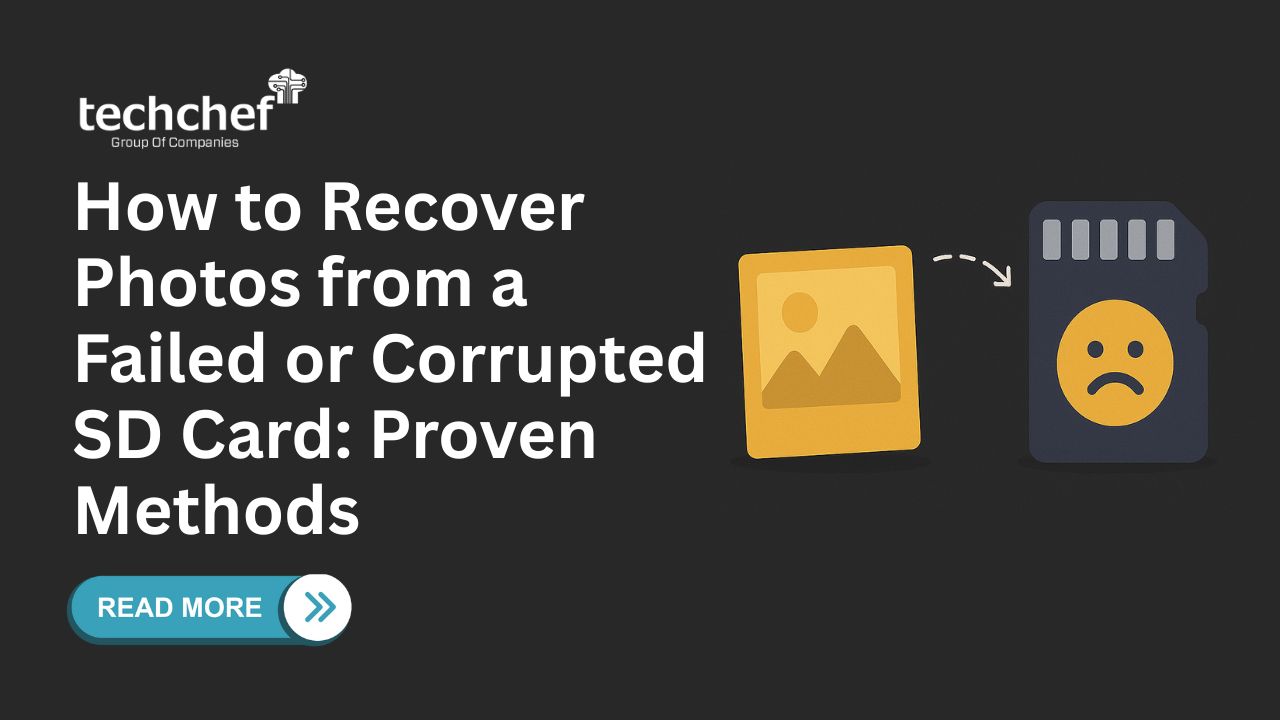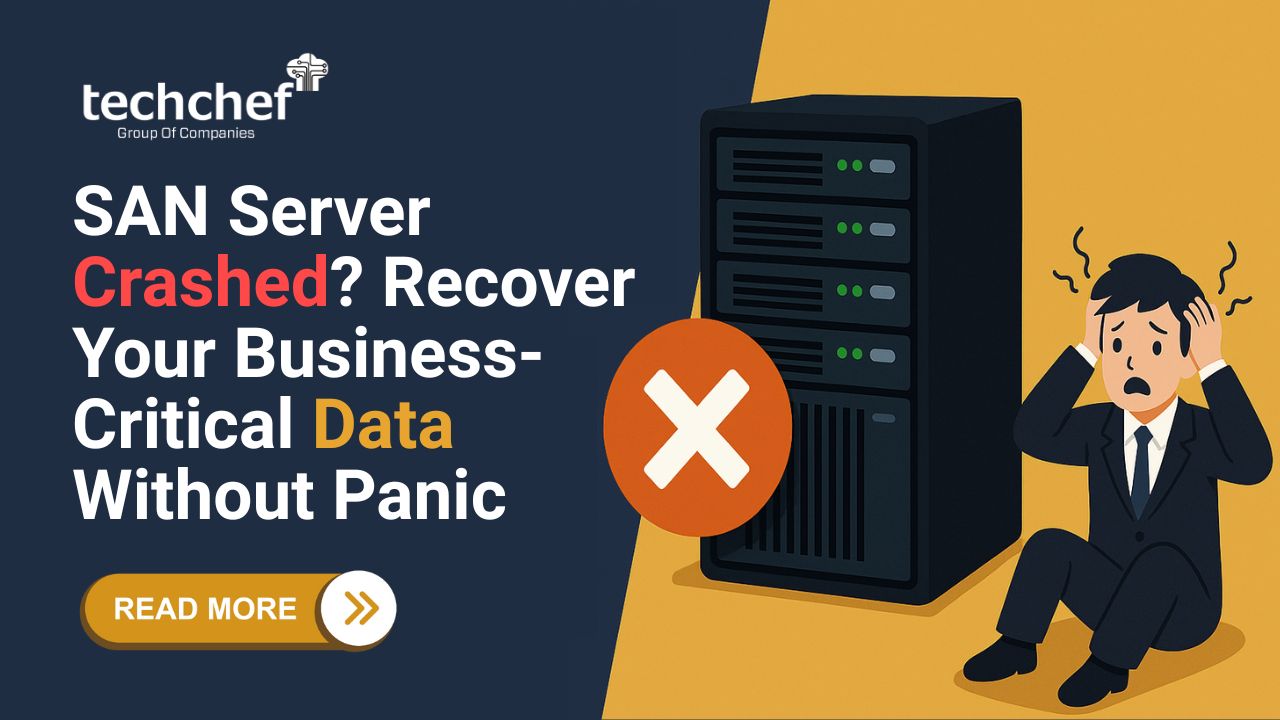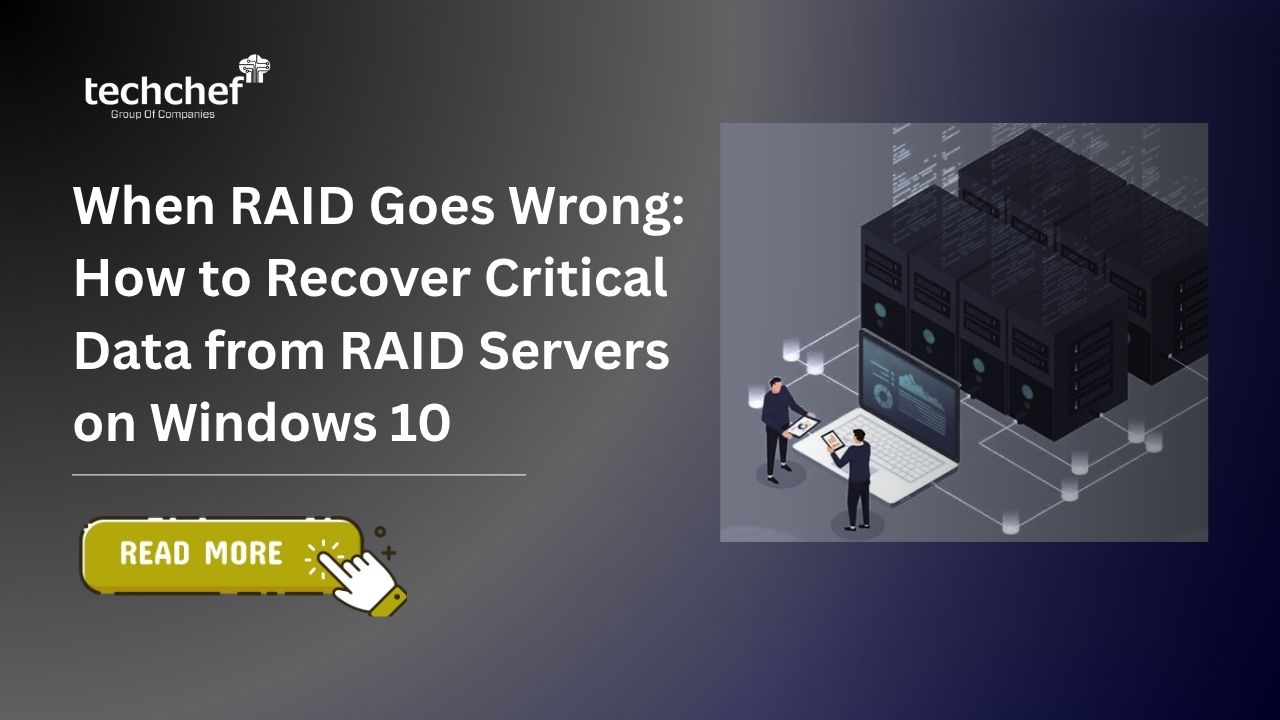Author Bio:
Hi, I’m Maneesh, with over 20 years of experience in data recovery and cybersecurity. Throughout my career, I’ve come across multiple cases of data loss, especially from SSDs, which can be difficult to recover. Seeing the increasing cases of SSD failures and how they impact personal and business data, I felt the need to write this blog to help you understand the difficulty of SSD data recovery and how Techchef can make it easy for you.
Introduction
Have you ever experienced the frustration of losing important files from your SSD? It’s a common issue that many people face, and causes a big question:
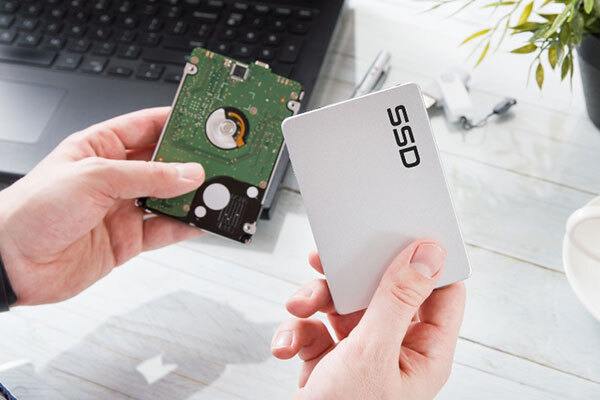
Can SSD data be recovered?
Whether it’s personal photos, crucial work documents, or sensitive data, the loss can be. You might be wondering if your SSD failure means your data is gone forever or if there’s still hope.
The good news is that SSD data can often be recovered. In this blog, I will take you through the world of SSD data recovery, explaining why it can be challenging, what solutions are available, and how you can increase your chances of a successful recovery.
Understanding SSDs and Their Unique Challenges
Before we start the recovery process, let’s first understand what makes SSDs different from traditional hard drives. SSDs (Solid State Drives) store data on flash memory chips, unlike HDDs that use spinning disks. This difference in technology means that the methods of data recovery for SSDs and HDDs vary greatly.
While SSDs offer faster data access and better durability, they come with their own set of challenges:
No moving parts: While this makes SSDs more reliable, it also affects the recovery when something goes wrong.
Wear leveling: SSDs use a method called wear leveling to distribute data across memory cells. This can make it harder to pinpoint where exact data is stored.
TRIM Command: Many modern SSDs use the TRIM command, which can permanently erase data blocks once they are deleted, making recovery harder if the command is enabled.
Did you know? SSDs can only handle a certain number of times you can write data to them. Over time, this can lead to the failure of memory cells, resulting in data loss.
Why Is Data Recovery Harder on SSDs?
SSD recovery is often more complex than HDD recovery. Here’s why:
1. Data Fragmentation: SSDs don’t store data in a sequence like HDDs. Due to wear leveling, data is separated across various memory chips, which makes recovery more difficult.
2. TRIM Functionality: When enabled, the TRIM command erases data blocks when you delete a file, making it impossible to recover using traditional methods.
3. Firmware Complexity: SSDs have advanced firmware that controls how data is managed. If the firmware gets corrupted, it can prevent the SSD from functioning completely, making recovery a job for experts.
4. Chip-Level Recovery: In some cases, SSD recovery may require chip-off recovery, where each memory chip is removed and read separately. This is highly technical and should only be managed by experts like Techchef.
Is It Possible to Recover Data from a Failed SSD?
Definitely! At Techchef, we’ve developed specialized techniques that allow us to recover data from SSDs, even in cases where other recovery attempts have failed. Our 95% success rate isn’t a coincidence—it’s the result of years of experience and investment in advanced technology.
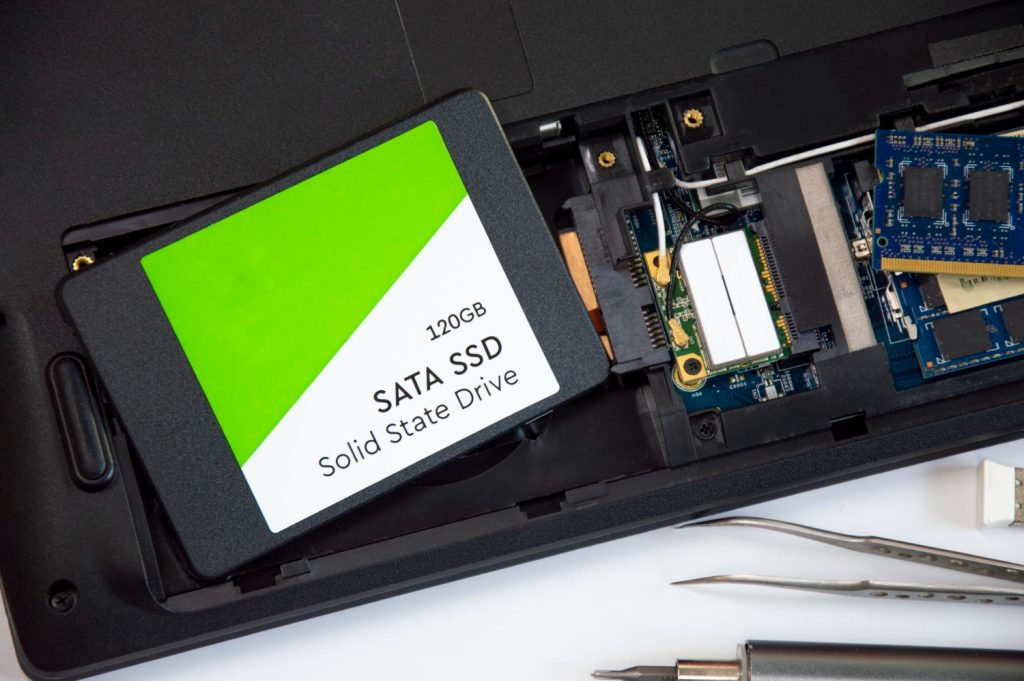
Some common methods to recover SSD data include:
Physical Damage: Even if your SSD has physical damage due to water or fire, it’s still possible to recover data by carefully removing the memory chips.
Firmware Corruption: Our engineers can repair or replace corrupted firmware to regain access to your SSD.
Logical Failures: If your SSD shows as unseen or you experience partition corruption, we can recover the data using advanced software.
How Techchef Handles SSD Data Recovery
When it comes to SSD recovery, it’s important to leave the job to professionals. Techchef’s process is thorough and provides the highest possible recovery rate:
1. Initial Assessment: We start by analyzing the issue. Is it a logical problem, a firmware failure, or physical damage?
2. Data Recovery Plan: Based on the assessment, we create a recovery plan. Whether it’s using DIY software or physically removing data from memory chips, every step is carefully planned.
3. Secure Environment: Our experts work in cleanroom labs, which are essential for preventing dust from further damaging your SSD.
4. Post-Recovery Data Integrity Check: Once the data is recovered, We perform integrity checks to make sure that the files are completely functional and working properly.
5. Safe Delivery: We securely deliver your recovered data to you, assuring that your sensitive information remains private.
Common SSD Failures and How to Handle Them
1. SSD Not Detected by the System:
Often caused by firmware issues or regulator failures. In such cases, you should directly contact experts before trying any DIY fixes.
2. Corrupted File System:
If your system crashes or you experience a power outage, your SSD may suffer from logical errors. Recovery software might help, but for sensitive data, professional help is advised.
3. Physical Damage:
Dropped your laptop? Physical damage can sometimes repaired. At Techchef, we regularly recover data from severely harmed SSDs using chipoff techniques.
4. SSD Dead in a Laptop:
Even if your laptop no longer boots, the SSD may still be saved. A professional service can remove and recover data from a failed SSD.
Pros and Cons of SSD Data Recovery
Pros:
High Success Rate: With experts like Techchef, you have a 95% chance of recovering your data.
Specialized Tools: Advanced techniques can recover data even from physically damaged SSDs.
Data Integrity: Professional recovery services ensure that your recovered data is safe and protected.
Cons:
TRIM Command Challenges: If the TRIM command is enabled, data recovery can be difficult or impossible.
Cost: SSD recovery is often more expensive due to the complexity of the process.
Time: Depending on the extent of the damage, SSD recovery can take longer than traditional HDD recovery.
Cost of SSD Data Recovery
The cost of recovering data from an SSD varies depending on the type of failure. Logical issues can be resolved more quickly and are therefore cheaper, while physical damage or firmware corruption requires more time and expertise, increasing the cost.
Techchef provides clear pricing, so you know what you’re paying for right away. Our goal is to deliver the best service with no additional fees.
Did You Know? The TRIM command, designed to improve SSD performance, can make deleted data unrecoverable. This is why it’s critical to act fast when you realize data loss has occurred.
Conclusion
Data loss from an SSD can be devastating, but it does not have to be permanent. With the right approach and expert help from Techchef, you can recover your important files and get back to normal. Whether it’s a failed SSD, logical error, or physical damage, we’re here to help you every step of the way.
How did you find this article? Have you ever faced SSD failure? Share your thoughts and experiences below—I’d love to hear from you!
At Techchef, with years of trusted experience in the industry, we ensure that your data is handled with the utmost care and protection. If you are facing data loss, we provide all kinds of data recovery solutions, including storage devices like HDD, SSD, RAID, NAS servers, and more.
Don’t hesitate to call us at our toll-free number 1800-313-1737. To book an appointment for SSD data recovery services, please visit our official website at www.techchef.in
Frequently Asked Questions (FAQ)
1. Can SSD data be recovered?
Yes, in most cases, SSD data can be recovered, especially if you act quickly and consult professionals.
2. Is data recovery harder on SSDs?
Yes, due to the complex architecture, wearleveling, and TRIM command, SSD recovery is more challenging than HDD recovery.
3. Is it possible to recover a failed SSD?
Absolutely! Experts like Techchef specialize in recovering data from failed SSDs through advanced techniques.
4. Can a corrupted SSD be fixed?
Depending on the level of corruption, an SSD can often be repaired and data recovered, particularly in cases of firmware or logical errors.
5. What does SSD data recovery cost?
Costs vary based on the type of failure, but professional recovery services like Techchef offer affordable and transparent pricing.

